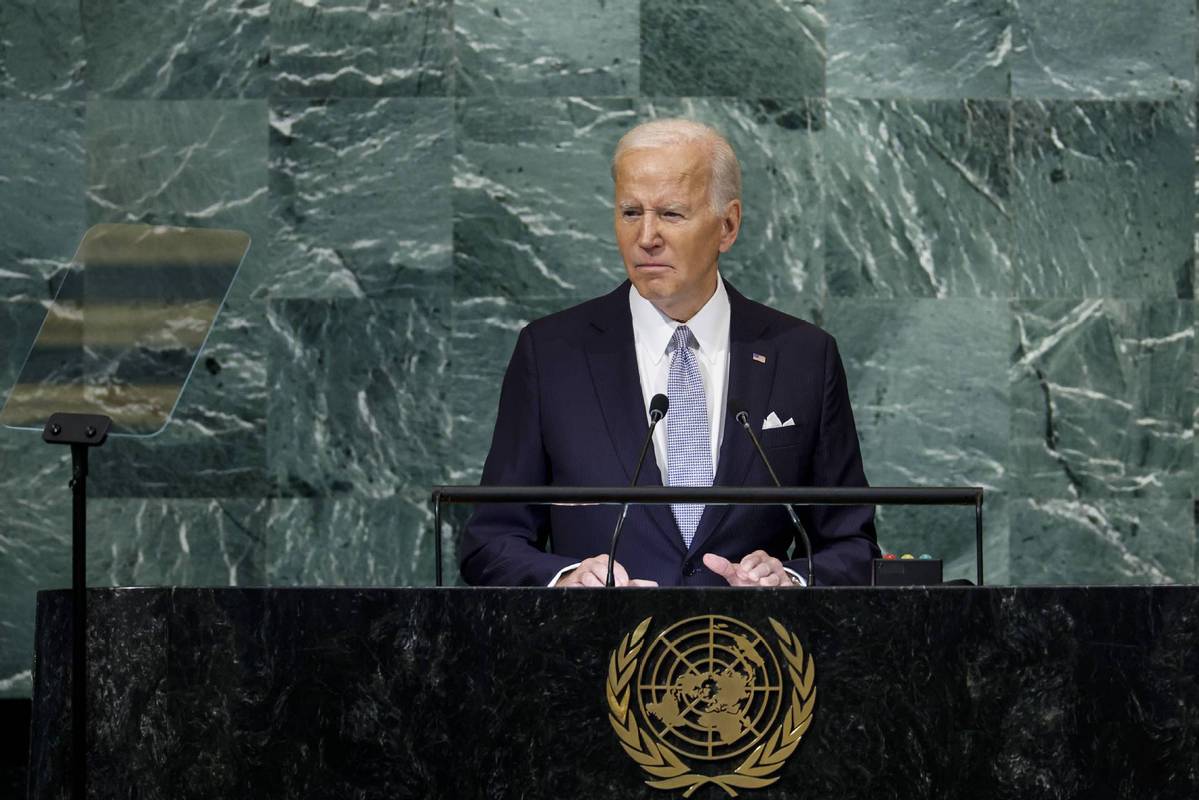Biden speech at UN General Assembly contradicts US acts


US President Joe Biden's remarks at the 78th session of the United Nations General Assembly on Tuesday show to what extent his deeds contradict his words.
Biden said the United States "seeks a more secure, more prosperous, more equitable world for all people", but he failed to mention the US embargo against Cuba, an embargo that has deprived the Cuban people of even ordinary goods, services and benefits, an embargo that has been condemned by the UN General Assembly every year for more than three decades.
Biden mentioned Haiti, which has been in a state of anarchy. The US often likes to brag about its nation-building ability, but it can't even help Haiti, which is only 1,300 kilometers away from Florida, restore stability and pursue development.
The US president also talked about his recent visit to Vietnam, yet he failed to mention the tragic legacy of Agent Orange, to name just one atrocity, which the US military used during the Vietnam War. Biden claimed that "with a concerted leadership and careful effort, adversaries can become partners, overwhelming challenges can be resolved, and deep wounds can heal".
That sounds as good as the title of Charles Kupchan's 2010 book How Enemies Become Friends. But I have not seen the Biden administration reaching out to countries it considers adversaries: the Democratic People's Republic of Korea, Venezuela, Iran, Syria or Russia.
On the contrary, Biden has been busy driving a wedge among nations, desperately trying to isolate Iran in the Middle East and sow discord between China and other countries in Asia.
That's why his remarks relating to China are totally false. Biden said that none of the US partnerships are aimed at containing any country, clearly referring to China. He said the US seeks to responsibly manage the competition with China so it does not lead to a conflict, adding that "we are for de-risking, not decoupling with China".
I wonder how many people back in Washington believe his words. Just a look at the daily headlines in the US media, the talks by US lawmakers and pundits and even White House officials will show they don't believe Biden's words. The fact is, the US has been reckless in its attempt to contain China economically, technologically and geopolitically.
If the US' coercion of its European allies to ban Huawei 5G from their telecom networks, its pressure on Dutch chip-making equipment manufacturer ASML to restrict exports to China, its crackdown on Chinese tech companies, its bid to exclude China from the global technology supply chains and Biden's recent executive order banning investment in China's high-tech sector are not containment policies, then what is?
Biden also talked about cooperation with China on climate change, but the US' crackdown on China's solar panels and its discrimination against Chinese electric vehicles are undermining the global fight against climate change.
Biden bragged about the G7's Partnership for Global Infrastructure and Investment, but the PGII launched in 2022 has been projected as a geopolitical tool to counter China's Belt and Road Initiative, which has been investing heavily to build infrastructure in the developing world.
If Biden is true to his words, he should direct his administration and persuade the other G7 members to join China and other countries in building infrastructure in Asian, African and Latin American countries so they can pursue development, instead of trying to turn the developing countries into geopolitical battlegrounds.
Moreover, Biden called for global unity on issues such as the Russia-Ukraine conflict, but the US administration has been waging a new Cold War to divide the world, after its hot wars in Afghanistan, Iraq and Libya forced those countries into chaos and penury.
Most countries in the world have refused to join the US and the European Union in imposing sanctions on Russia. They have, instead, been calling for a cease-fire, dialogue and diplomacy, things that the US and NATO have rejected so far, to end the conflict.
The author is chief of China Daily EU Bureau based in Brussels.
chenweihua@chinadaily.com.cn


































